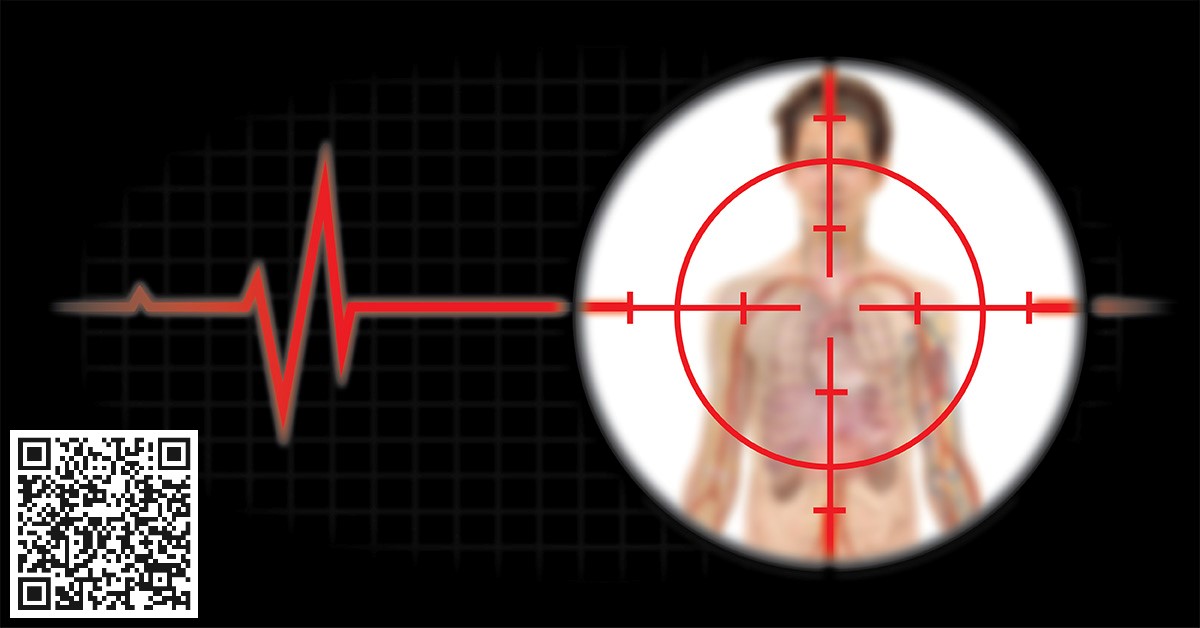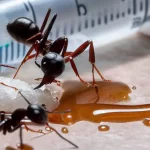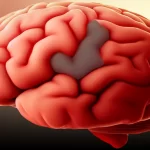Hypertension is a condition in which the pressure of blood in the ‘blood vessels’ is too high; therefore, another name for it is “High Blood Pressure”.
Over a billion adults worldwide, live with hypertension, and millions die every year, many, without ever knowing.
The first part of this article is a poem that ‘personifies’ hypertension, while the second is its elaboration.
Press play below, to see a video/ recital of this poem.
Hypertension: focus on the tactics of the silent killer
I hunt my victims, like prized wares,
their wanton ignorance, turning my gears
Mostly, I’m known within aged peers,
but my appetite, beyond age transcends
It seems no one really comprehends
the extent that my reach extends
I come not with weapons of assault;
my focus, little things like dietary salt,
and prescribed medication default,
your ardent belief in everything online,
like posts that tag every sign as benign,
and superstitions about things like red wine
Your failure to go for checkups,
thinking it’s all about walks and push-ups,
taking strange herbs for “blood cleanups”,
banking on “common sense”, luck, genetics
and self-medicating on drugs like diuretics,
all help to buffer my sinister tactics
“My parents were free”, you boast
not knowing they were never diagnosed
“it affects overweights the most”
Those kinds of thoughts give me thrills;
go ahead, take the slimming pills
and add emetics to your refills
In time, I initiate my attack plans,
with special focus on the vital organs,
taking them down like rival clans;
first the life lines, the arteries,
of the brain, heart, eyes and kidneys
Other structures fall in series
Mostly I give no sign, I’m all mysterious,
you never suspect I’m really serious,
but every now and then, I go insidious;
in the mornings, fresh out of bed,
you get aches at the back of your head,
vertigo, tinnitus or you just fall dead
My candid advice… write your will;
eventually I swoop in for the kill,
with a number of options on my bill,
from stroke to myocardial infarction
You may die without intervention;
there’s no escaping me, I am hypertension
Hypertension (the poem), explained
Background
The Heart, The Circulatory System and Blood Pressure
The Heart connects to veins and arteries to distribute blood round the body; Heart + Veins + Arteries + Blood, make up the circulatory system. Follow this link, to learn more: “The Circulatory System: a look into the Red Prison“.
Like a pump, the heart distributes blood to the whole body, receiving from the veins at one end, and ejecting through the arteries.
At the receiving (venous) end of the heart, blood pressure is very low, usually 0-6 mmHg; however, at the “dispensing” (arterial) end, blood pressure is much higher.
‘Hypertension’ generally refers to ‘high blood pressure’ in the arteries; however, there are other types. If there is a need for distinction, it is usually indicated, for example, venous hypertension, pulmonary hypertension and so on.
As the heart acts by contracting to pump out blood (from the arteries), and relaxing to take in blood (from the veins), the blood pressure fluctuates accordingly. Follow this link to learn about normal heart function: “The Heart that Beats (focus on the Normal)“.
The pressure that the heart exerts as it ‘squeezes out blood’, or ‘contracts’ is the ‘systolic pressure’. On the other hand, when the heart relaxes and fills with blood, the pressure it exerts is the diastolic pressure’.
Blood pressure is therefore a measure of ‘systolic’ and ‘diastolic’ pressure, recorded as:
You may have seen “systolic/diastolic pressure” written like this:
Normally, the blood pressure fluctuates according to activity or demand, being lowest when we are inactive (e.g. sleeping) and highest when we are active (e.g. running).
Blood pressure regulation
Certain mechanisms ensure that the blood pressure is within a safe range, that is, it does not get too low or too high.
Organs that help to regulate blood pressure include:
- Brain: Pressure receptors (baroreceptors) along certain blood vessels, sense that the blood pressure is getting too high or low and send signals to the brain. The brain in turn sends signals to the heart, or produces compounds that reduce or increase blood pressure, accordingly.
- Kidneys: When blood pressure drops, the kidneys respond by retaining water and producing a compound known as renin that helps to increase blood pressure.
- Adrenal glands: They respond to decreased blood pressure by producing a compound, aldosterone, which in turn helps to increase blood pressure.
- Lungs: They produce an enzyme known as ‘angiotensin converting enzyme (ACE), which also helps to increase blood pressure.
Sometimes, these mechanisms are not enough to properly regulate the blood pressure, probably due to a disease of the “regulating” organs, or other factors.
Certain medical conditions may make some of the above compounds, like aldosterone and ACE to be too high, thereby causing hypertension. For example, hyperaldosteronism presents with high aldosterone. Some drugs which help to treat hypertension therefore target these compounds.
Blood pressure that reads ≥140 mmHg systolic and/or ≥90 mmHg diastolic on two different days, shows hypertension.
Stanza 1
“I hunt my victims, like prized wares;” (stanza 1, line 1)
Hypertension is a chronic condition, that is, it lasts in the body for a long time.
For years, a person could have hypertension without knowing it, because it usually does not cause symptoms.
“their wanton ignorance, turning my gears … Mostly, I’m known within aged peers … but my appetite, beyond age transcends” (stanza 1, lines 2 to 6)
Hypertension is a major health challenge in older adults, however, no age grade is exempt, even newborns.
There are two forms of hypertension: primary(essential) and secondary.
- Primary(essential) hypertension accounts for 90-95% of cases, and there is no identifiable cause; predisposing factors however include genetics and environmental factors, like diet.
- Secondary hypertension accounts for 5-10% of cases. Conditions like kidney disease (most common), thyroid disorders (hyperthyroidism and hypothyroidism), pheochromocytoma and so on, may lead to hypertension. The blood pressure is meant to return to normal once these conditions are treated.
Stanza 2
“I come not with weapons of assault; … my focus, little things like dietary salt,” (stanza 2, lines 1 and 2)
Too much salt in the diet raises blood pressure; this may lead to hypertension, or exacerbate already present hypertension.
Salt has both short and long term effects on the blood pressure, increasing it.
On the short term, it makes the body to hold on to water, while on the long term, it contributes to narrowing of the blood vessels.
Dietary salt does not necessarily come from ‘table salt’; some foods have higher salt content than others. Follow this link to learn more about “Salt and Hypertension“.
“and prescribed medication default,” (stanza 2, line 3)
Many people on treatment for hypertension take medications only when their blood pressure readings are high, or when they feel symptoms like headaches.
The longer the blood pressure remains high, the more damage it causes in the body.
It is therefore important to adhere strictly to your ‘prescribed’ blood-pressure-lowering medications, as well as to monitor your blood pressure regularly.
“your ardent belief in everything online, … like posts that tag every sign as benign,” (stanza 2, lines 4 and 5)
We have become heavily reliant on online information, including those about health.
Sometimes, we even attempt to get a diagnosis for our symptoms; unfortunately, it is not always straightforward. A mild symptom may be interpreted as severe, and vice versa.
“and superstitions about things like red wine” (stanza 2, line 6)
Research shows that moderate consumption of red wine may be beneficial to the heart. However, excess consumption is unhealthy and the use of alcohol (including red wine) while on medications is not advisable.
Excessive alcohol intake can lead to hypertension, heart failure, as well as other conditions. Follow this link to know more about “The effects of alcohol on your heart“.
Stanza 3 & 4
“Your failure to go for checkups;” (stanza 3, line 1)
Regular ‘check-ups’ or screening for hypertension is very important.
A lot of damage may be going on in the body, even without symptoms; that is why hypertension is “the silent killer“.
Different countries or health-bodies have their recommendations for screening for hypertension. The USPSTF (U.S. Preventive Services Task Force) for example, recommends the following:
- Screening for hypertension every year in adults 40 years or older and in adults at increased risk for hypertension (africans/ african-americans, persons with high-normal blood pressure, or persons of higher weight)
- Screening less frequently, that is, every 3 to 5 years, as appropriate for adults aged 18 to 39 years not at increased risk for hypertension and with a prior normal blood pressure reading.
Follow this link to learn more about the “USPSTF recommendations for screening for hypertension in Adults“.
The World Health Organization (WHO) estimates that:
- Over 1 billion adults aged 30–79 years worldwide have hypertension.
- Close to 50% of adults with hypertension are unaware that they have the condition”.
“thinking it’s all about walks and push-ups, … taking strange herbs for “blood cleanups”, … banking on “common sense”, luck, genetics … and self medicating on drugs like diuretics” (stanza 3, lines 2 to 5)
“My parents were free”, you boast … not knowing they were never diagnosed … “it affects overweights the most” … go ahead, take the slimming pills … and add emetics to your refills” (stanza 4, lines 1 to 6)
Healthy diet and exercise help to reduce blood pressure in people with, or without hypertension (NOTE: generally, exercise can be combined with blood pressure medications but consult your doctor first).
The WHO recommends at least 150 minutes of moderate intensity exercise every week, for example, ‘brisk walking’, jogging, dancing, etc.
Self-medication, be it through the use of herbs, over-the-counter drugs, and so on, could be dangerous, for a number of reasons.
- Your self-diagnosis could be wrong.
- You could be right about the diagnosis, but wrong about the drug/ medication dosage.
- Other conditions may be present which you are not aware of.
- The composition of the “herb” you are taking is usually not clearly stated.
- There is the possibility of dangerous drug interactions.
- Delay in seeking proper medical care because the medications you are taking mask your symptoms.
Another aspect of self-medication, borders on attempts to loose weight, probably borne out of the assumption that lesser-weight people are healthier.
Well, it is true that being of higher weight is a risk factor for hypertension, however, lesser-weight persons have it also.
On one hand, multiple risk factors (like older age, physical inactivity, genetics, high-salt diet, etc) interplay, leading to hypertension. On the other hand, some factors like insulin-resistance, implicated in the mechanism of higher-weight-related hypertension, are also found in lesser-weight persons.
Self-medication with slimming pills, diuretics, emetics, caffeine and so on, to loose weight, in an attempt to prevent hypertension may be counter-productive, to say the least. This is because they all have their side effects that could in contrast, contribute to hypertension.
As regards genetics, a person whose parent has hypertension is likely to have it also, especially if it affects both parents.
This does not mean that if parents do not have hypertension, the offsprings also will not. Recall that hypertension in the result of genetic predisposition and/or unhealthy life styles.
Also, many people live through life without ever getting diagnosed, especially if it is mild hypertension. This implies that offsprings might inherit genetic predispostion to high blood pressure, but live in the false comfort that ‘the family is hypertension-free’.
Stanza 5
“In time, I initiate my attack plans, … with special focus on the vital organs, … taking them down like rival clans; … first the life lines, the arteries, … of the brain, heart, eyes and kidneys … Other structures fall in series” (stanza 5, lines 1 to 6)
Hypertension causes the arteries to become less elastic by causing the vessel walls to thicken (arteriosclerosis) as well as fatty plaques deposit within them (atherosclerosis).
These changes are most apparent in the small arteries, and may lead to significant deterioration of function.
If the functions of the “vital organs” (brain, kidneys, heart etc: so-called because they are vital for survival) deteriorates enough, death may ensue.
Stanza 6 (symptoms of hypertension)
“Mostly I give no sign, I’m all mysterious, … you never suspect I’m really serious, … but every now and then, I go insidious; … in the mornings, fresh out of bed, … you get aches at the back of your head, … vertigo, tinnitus, or you just fall dead” (stanza 6, lines 1 to 6)
Even though hypertension usually does not come with symptoms, sometimes people complain of early morning headaches, dizziness, altered vision or buzzing in the ears (tinnitus).
In the case of secondary hypertension (see above), certain tell-tale signs and symptoms may be present, for example:
- Bulging eyes, rapid heart rate, increased appetite, weight loss and neck mass, in cases of hyperthyroidism.
- Rapid weight gain, with fat accumulation around the face, neck and trunk, with irregular menses in Cushing’s syndrome.
Hypertension may also present for the first time with fainting/ loss of consciousness, chest pain, nose bleeds or difficulty breathing.
Sadly, in many cases sudden death may ensue, and a diagnosis of hypertension is only made post-mortem.
Stanza 7 (complications of hypertension)
When blood pressure remains persistently high, complications begin to set in, for example:
- Heart: In an attempt to adapt to increased blood pressure, parts of the heart begin to enlarge, as in ‘left ventricular hypertrophy’, which may lead to ‘Congestive Heart Failure (CHF)’. Other complications include myocardial infarction (heart attack), abnormal heart rhythm (arrhythmia) and ‘Coronary Artery Disease’.
- Brain: Hypertension may cause cognitive deficits, dementia or stroke especially in older populations.
- Kidneys: Hypertension is a risk factor kidney damage, in the form of Chronic Kidney Disease (CKD) or End-stage Renal Disease (ESRD).
Diabetes and Hypertension have a causal relationship that goes both ways; that is, the presence of one is a risk factor for the other.
If a person has hypertension, there is a high probability of having diabetes in some years.
Prompt diagnosis and intervention (medical or surgical), as well as lifestyle changes are vital to the survival of hypertension.
Conclusion
Hypertension (high blood pressure) is a chronic condition that frequently affects older people and those who have genetic predisposition; however, it can affect any one.
Unhealthy lifestyles like consumption of too much salt, and physical inactivity are also important risk factors.
Hypertension is a major cause of premature/ sudden death, because it may not present with symptoms. Regular checkups are therefore important for prompt diagnosis and treatment.




